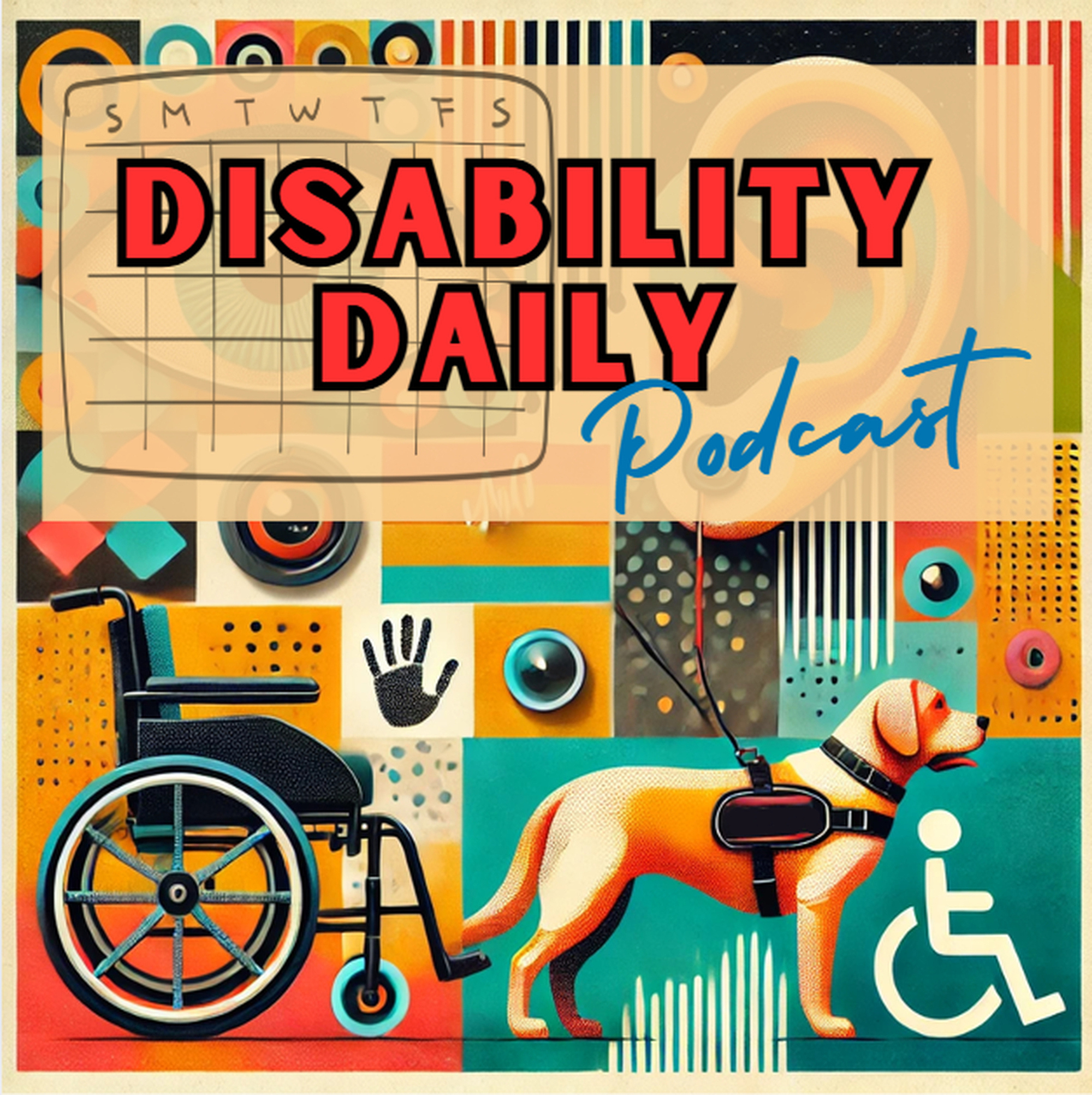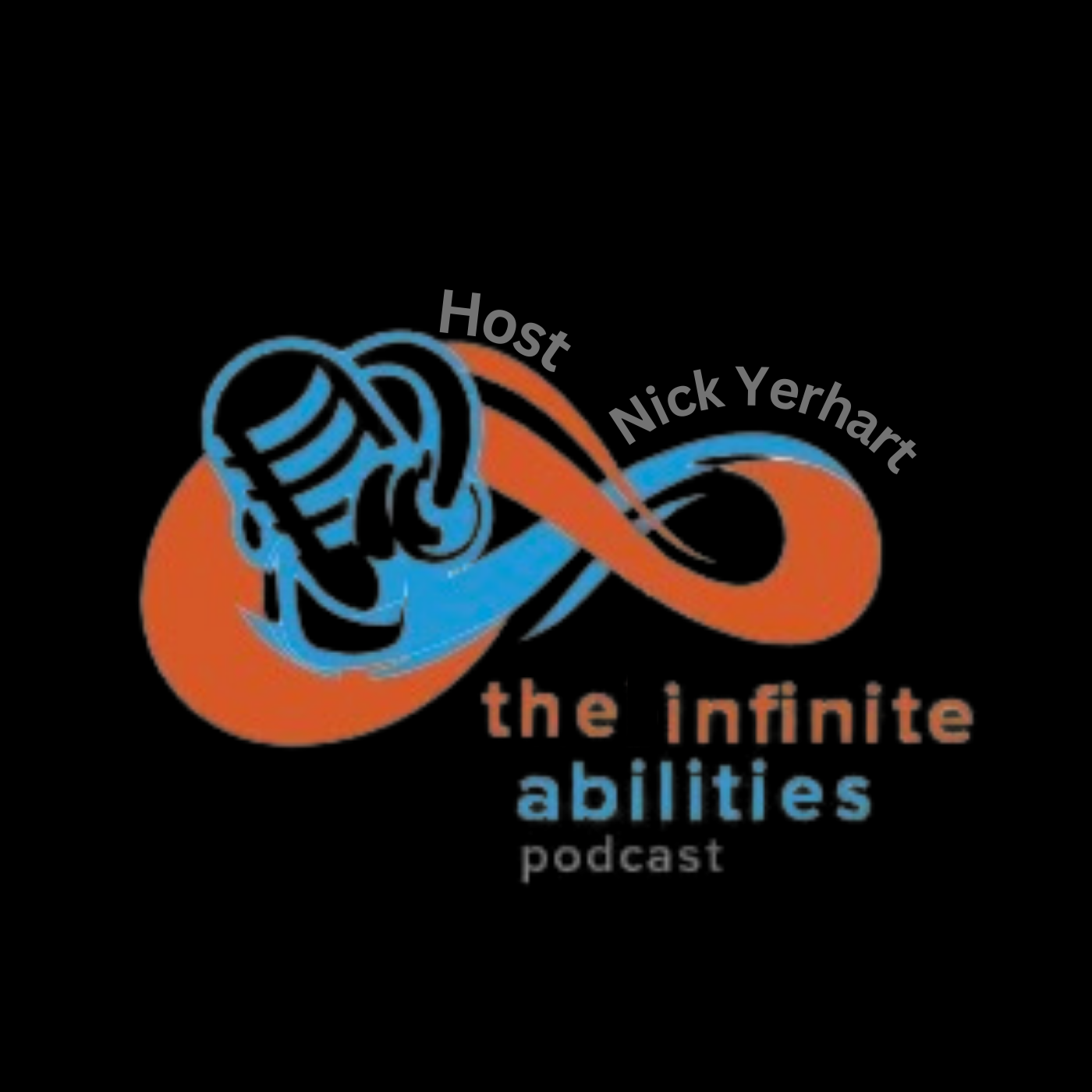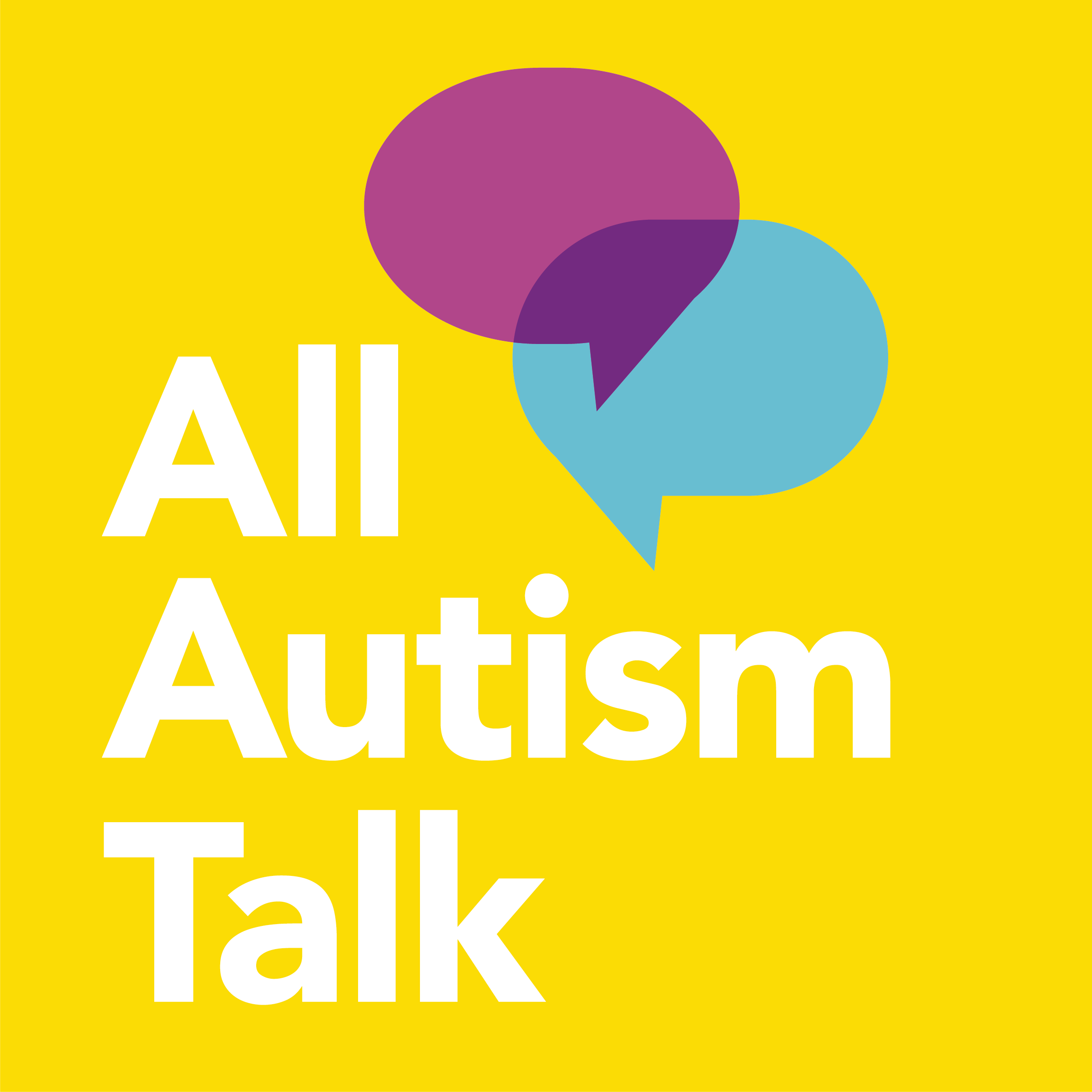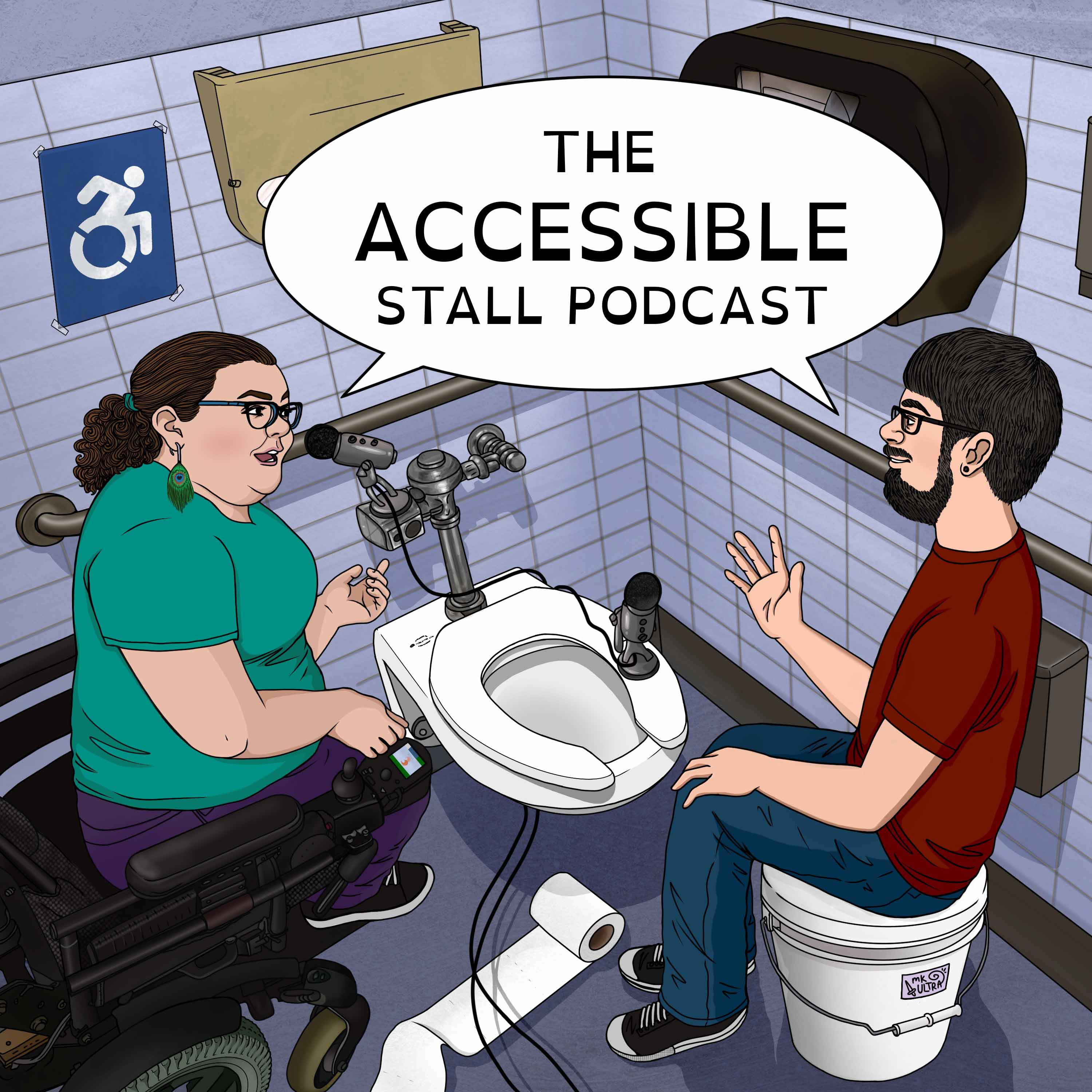
The Post Secondary Transition Conversation
We talk about the ins and outs (and everything in between) of the secondary transition process for families of students with disabilities! Hosts Meghan (Smallwood) and Patrick (Cadigan) serve as supportive guides, leading families step-by-step up each rung of the transition ladder.
Also check out our parent website: https://www.postsecondarytransition.com
The Post Secondary Transition Conversation
077. Interview: Jamie Brodnax - What is a Support Broker? Pt. 1
In this first installment, hosts Meghan (Smallwood) and Patrick (Cadigan) discuss the role of Support Broker with Jamie Brodnax, who recently transitioned from Coordinator of Community Service (CCS) to running her own Support Broker agency. The team of three work to clarify the differences between support brokers, the CCS & day-to-day administrators. They emphasize the support broker's role in self-directed services, while Jamie explains some of the tasks her position asks for, including attending PCP meetings, budgeting, and creating newsletters to keep teams informed. They also talk about the importance of early planning and accurate information sharing, especially amidst frequent policy changes. Join the conversation!
Episode Keywords:
support broker, self-directed services, DDA, person-centered planning, budgeting, compliance, day-to-day administrator, transition coordinator, newsletter, advocacy groups, fiscal management services, IEP, PCP meetings, family support
Links:
Acronyms/Definitions (page)
Maryland (specific) Links/Supports:
Achieving Independent Support Services (site)
DDA Connection (page)
To download a copy of a transcript for this episode or any of our previous conversations, click here.
Also visit our Podcast webpage to find links to all of our other discussions; go to www.p2transition.com.
Additional information about post-secondary transition can be found at our website.
The Post-Secondary Transition Podcast Facebook page.
Visit our YouTube Channel to find additional video resources.
Intro/Outro music by AudioCoffee from Pixabay.
Transition music by Joseph McDade from Transistor.
Welcome. This is the Post Secondary Transition podcast where we have conversations around the ins and outs and everything in between of the transition process for families of students with disabilities. I'm one of the hosts. My name is Meghan Smallwood, and I am a public school transition coordinator. And as always, I have my co host with me.
Patrick Cadigan:My name is Patrick Cadigan. I am also a public school transition coordinator, I feel like we've been here before, but it's always a good thing. Meghan and I are back into our classic format where we get to talk to somebody. And as it turns out, Meghan, you want to tell everybody who we're talking to?
Meghan Smallwood:Yeah, we brought back one of our favorites, Jamie Brodnax, because we figured self directed and support brokers has been such a hot topic, and it's only expanding. So it would be great to hear from the source of someone who lives it every day and just found out it's a lot that she's doing.
Jamie Brodnax:Yes, yep, and it's constantly changing. So I'm excited to share some of this information with you guys.
Patrick Cadigan:Quick update so that everyone knows what's going on; because if I remember the last time that we talked, you were a Coordinator of Community Service. So, Ms. Broadnax, what has changed?
Jamie Brodnax:So just over a year ago, I ended being a service coordinator and transition to a new role of being a support broker, and have my own support broker agency now.
Meghan Smallwood:And what is the name of that?
Jamie Brodnax:It is Achieving Independent Support Services.
Meghan Smallwood:Awesome.
Patrick Cadigan:All right, no shameless self promotion here.
Meghan Smallwood:I gotta throw it in there.
Patrick Cadigan:Okay, so I love these kinds of conversations, because Meghan knows so much more than I do. So I get to play catch up. If you were asked to give a definition of a support broker, Jamie, how would you describe it?
Jamie Brodnax:I would say that a support broker is really a role that is designed to provide assistance to the participant or the individual, whatever they would like to be called and their team to just help them with managing all of the responsibilities that come along with choosing to self direct their services.
Meghan Smallwood:Now that is different than the coordinator of community services or CCS, right?
Jamie Brodnax:Yes, yep.
Meghan Smallwood:...because I feel like a lot of families get confused with so many different titles and acronyms that they're not sure who does what, but the support broker is specifically for self direction.
Jamie Brodnax:Yes, and...
Meghan Smallwood:In addition to the coordinator.
Jamie Brodnax:Exactly. So every person that has DDA services gets a coordinator. It is typically not a person that you choose. It's someone that's assigned to you based on the agency that you choose to work with, but a support broker, we are interviewed, hired, chosen by the participant or their representative, and not everyone has to have a support broker or chooses to have a support broker. Only people in self direction, and then, even more specific, only people that have family and staff or a day to day administrator on their staff are required to have a support broker. Anybody can have one that's in the self direction, but it's not required unless you fit one of those two things.
Meghan Smallwood:I see. So a family is working for the individual, then they are required to have it...
Jamie Brodnax:Yeah.
Meghan Smallwood:...always.
Jamie Brodnax:Yeah. And then you said the day to day assistant, day to day administrator, that's something new. It is. It's relatively new. I want to say it's been a thing for about two years, but more popular in the last year, year and a half. And that's a role that is similar to support broker and to the CCS. It's kind of like those three roles are there as the support roles, but the day to day administrator takes on a little bit more of the daily management, so maybe creating schedules, making appointments, supporting the person with their personal finances, you know, the day to day needs of the team in The household where the support broker is more focused on the self directed aspect and the budgeting and making sure that things stay compliant, and the CCS really oversees a little bit of everything, but mainly focuses on that person centered plan and the services and the implementation of those.
Meghan Smallwood:So if the the family. I know a lot of parents when when they're thinking about self directed it's an overwhelming and daunting task to think about a schedule and trying to plan out what the individual will do every day. So it sounds like that day to day administrative assistant would be very helpful.
Jamie Brodnax:Yeah, it definitely can be. And even more so, a lot of parents. Parents choose to take on that role for themselves and then have hired staff take on the role of being the support staff, because a lot of times you know as mom or dad or guardian, you're already doing those things. You're already making the appointments and helping with the finances. You already know the daily schedule and the things that are happening. So it's easy to fall into that role and then leave the services to someone else, or do a combination.
Meghan Smallwood:So the day to day, if you were to have a day to day administrative assistant, that's not required?
Jamie Brodnax:It is not.
Meghan Smallwood:...so you can potentially start with one, and then over time, as you become more comfortable, kind of take it out of the plan?
Jamie Brodnax:Absolutely. And with day to day administrator two, that is not a role that is funded by DDA. So that's a role that a person has to use cost savings in their budget to fund. So it depends on, can you afford a day to day administrator, and maybe that's one of the things that I can help with, is figuring out how to adjust the funding and some of the other services to leave money for that role.
Meghan Smallwood:Ah, ok, whereas the support broker is actually funded through the plan?
Jamie Brodnax:Yes.
Patrick Cadigan:So then Meghan and I have said it a million times over, that all of these things, transition in general, is very individualized. However, for you, Jamie, what does a day look like for you?
Jamie Brodnax:So it's funny you bring up the individualized part, because it really is difficult to say, because every day is different, because every team is different, there are some things that I would say I do pretty commonly, maybe not every day, but there's, you know, I'm attending all of the PCP meetings and helping with identifying the best way to use the funding that DDA provides in their PCP. I'm also just helping the teams with understanding their budget, because sometimes they're confusing to look at, especially if you're not a numbers person, or somebody who's done a lot of budgeting and then monitoring the spending that takes place throughout the year. It's not always easy to track payments in time sheets and making sure that things are getting paid the way that they're supposed to, and that there's no errors. So I do a lot of that on a regular basis. I'm also always assisting the teams when problems come up, so if somebody doesn't get paid, or if there's a document that needs to be updated, or information that needs to be updated with the FMS, I'm getting on top of that as quickly as possible, just to keep things running smoothly and making sure there's no compliance issues. None of the staff are missing their payments. And then I'm also helping with keeping the teams informed, especially now where we're at a time where literally weekly or monthly, we're seeing changes regarding the government, DDA, self directed, the FMS is there's just so many changes. It's it's really difficult to keep track of all of that information. So I make that a part of my job, to create monthly newsletters and send that out so that everyone is receiving the same information, and kind of understands when I'm calling them asking about something, they're not blindsided. But then, you know, on other days, it could be helping somebody hire or advertise for staff. Could be helping with completing the self directed documents. And then I also do trainings for people that are new to self direction, to help them understand all of the things that they're going to be expected to do on a regular basis.
Patrick Cadigan:And for the uninitiated or any new listeners that we have, this is what we affectionately refer to as acronym vomit. FMS will be Fiscal Management Services, PCP being Person Centered Planning. Always happy to help in situations like this, to make everything that we're learning just a little bit more clear. We now join our regularly scheduled program already in progress.
Meghan Smallwood:I love your idea of a newsletter and keeping everyone informed of the changes, because I know there's a lot of worry around what that's going to look like moving forward, but that is a good question for a family to ask. Then, if they're interviewing a support broker, like, how do you keep people informed what kinds of things you do? Because, again, that's individualized depending on the support broker, right?
Jamie Brodnax:Yes, and it's not something that I think every support broker does, maybe the exact same way that I do, I know that there are some who may experience their support brokers sending them the newsletters that come out. DDA does have their own DDA connection that they send out each FMS has their own updates. So do the many other advocacy groups, and, you know, just groups that. Following self direction, I just choose to keep track of all of those and put it together in one hopefully easy to understand newsletter, and then send that out to everyone that I support and their teams at least once a month, unless there's no big changes, which, since I've started, that hasn't happened.
Meghan Smallwood:There's always big changes with the state that'll never stop. I was just gonna add, I know we were talking before we started, just about, like families looking for a support broker. And honestly, there's no early, well, there's an early time, but you shouldn't be waiting until, you know, right before exit, to come up with one, right or interview one.
Jamie Brodnax:Absolutely. I mean, you know, things change, and I have seen where some people maybe start out the process not planning on going self direction and then deciding at some point that they do want to go that route. So you can always reach out whenever it is throughout the year, and you know your CCS can support you in identifying a support broker, but specifically for transitioning youth, I definitely suggest when you really start that planning process, include talking to support brokers in that early part of the planning. It helps not only the support broker be prepared, but it also allows the support broker to attend those meetings. I've been to quite a few IEPs, quite a few early PCP planning sessions, and that way the support brokers get a good idea of what the person is looking for, and can help make suggestions, but also then the team has the knowledge of the support broker and identifying different things that they can put into the PCP, helping to build that first budget, and really just understanding what's going to be required of them, because going from The school setting to DDA is already a big transition. Deciding to go self direction adds a little bit more responsibility to that, so it's good to have an idea upfront of what you can expect.
Patrick Cadigan:Jamie, you've mentioned this a couple of times. Obviously, lately, there's been a lot of discussion, both in the media and just in general, with all these changes, as the Support Broker, how do you find out about the changes, and then how do you know what is the correct information to pass on?
Jamie Brodnax:That is a great question, so it takes a lot of patience and really paying attention to what is coming from DDA, what is coming from the advocacy groups I attend, all of the webinars, all of the hearings, I read everything that they send out, and sometimes it doesn't apply, but a lot of times it'll Be that last paragraph that shares that really important information. I really try to lean towards transparency. So I share information as I'm getting it, and if I am not 100% or if there are some, you know, some details that haven't been shared, I will say that because I think again, just that early knowledge of knowing what to expect is so important, I don't want to wait until I have every single detail and then share it and something's happening in two weeks where I could share it a few months in advance, people can be prepared. They can ask questions. We can find out together with the final details are going to be but yeah, really just attending all of the hearings, listening to what's being said, reading all of the information that comes out, and then spending the time to put that into understandable words. Because unfortunately, sometimes some of the newsletters and things that are released are in very DDA specific terminology. And, you know, there are all differing abilities when it comes to understanding, so I just want to make sure that I'm as clear as possible and as transparent as possible.
Meghan Smallwood:Yeah, that's definitely helpful, because I even get all the emails and I'm like, Oh my gosh, I don't even know how to decipher this, and I know I have to go down the rabbit hole, but I think of a parent and everything else they might have on their plate, and how, like, just overwhelming and stressful that can be. So it's so helpful to know that they could have a support broker helping them through that process.
Jamie Brodnax:Absolutely, and their CCS as well. Unfortunately, what I do see sometimes is specifically with some of the social media groups, is that there will be a person who doesn't fully understand and then they may share information that isn't a. Ways completely accurate. So I would definitely say, if you are unsure about something, go to your CCS, go to your support broker, they can help you in understanding what's happening.
Patrick Cadigan:Wait a minute! Are you intimating that social media might not be correct..?!
Jamie Brodnax:Sometimes.
Patrick Cadigan:Ahhhh, now...
Meghan Smallwood:Patrick's mind is blown.
Patrick Cadigan:Now we're just getting political. Oh, this is ridiculous. All right, I'm changing...
Meghan Smallwood:And its sooo...
Jamie Brodnax:It's not always an intentional misunderstanding? Some of it's just confusing.
Meghan Smallwood:Yeah.
Patrick Cadigan:Of course.
Meghan Smallwood:And you're right. I mean, I think it's so like, there's such a positive to having these groups so people can lean on each other. But you're right, I always tell families to take everything they read with a grain of salt, and, you know, do a little more digging, or talk to your resources and just make sure it's accurate.
Jamie Brodnax:Absolutely.
Patrick Cadigan:Well, as the transition coordinator, the other thing that I've had to do is to tell people to to just be patient, because you never know. You never know what's going to happen. And for those who are not paying attention, or if they can't necessarily hear, Meghan decided that she didn't want to be in the meeting.
Meghan Smallwood:Meghan's computer accidentally, like hit the button. I told you, technology is not my friend today.
Patrick Cadigan:Ladies and gentlemen, Ms. Smallwood has decided to join us once again.
Meghan Smallwood:Had to make another grand appearance!
Patrick Cadigan:And this is where we decided to pause the discussion. So in two weeks time, come back and continue the discussion with friend of the podcast and support broker Jamie Broadnax.
Meghan Smallwood:As always, you'll find links to the information from our conversations in our show notes. We would love for the information from this and all our other discussions to reach as many families as possible, and we need your help to do that. You can find our conversations at www.p2transition.com, like, follow, share out the podcast. Our conversations are posted to all the major platforms, including Apple podcasts, Spotify, YouTube music, and that's just naming a few. So please share and share often.
Patrick Cadigan:Please check out our YouTube channel. We've done some of the legwork for you by curating videos of topics that revolve around transition. We have playlists for guardianship, alternatives to guardianship, ABLE accounts, and there's more to come. So please be sure to subscribe there as well. And finally, check out our website, which is full of information and links to resources around the transition process. Open your web browser of choice and surf to www.postsecondarytransition.com. We thank you so much for the time that you've spent with us, and look forward to talking again soon.
Podcasts we love
Check out these other fine podcasts recommended by us, not an algorithm.

T21Mom-A Down Syndrome Podcast
T21Mom.com
The Collaborative IEP
Ashley Barlow
Disability Daily Podcast
Katie Healey, PhD, CPACC
The Infinite Abilities Podcast
Nick Yerhart
All Autism Talk
All Autism Talk
The Accessible Stall
Kyle Khachadurian and Emily Ladau
Disability Deep Dive
Disability Rights Florida
STAY Tuned: Supporting Transition-Age Youth with mental health conditions
STAY Tuned at Transitions to Adulthood Center for Research
Moms Talk Autism Podcast
Shannon Korza, Brittney Crabtree, Tash Dillmon, and Jean Mayer
Your Child's Brain
WYPR Baltimore



